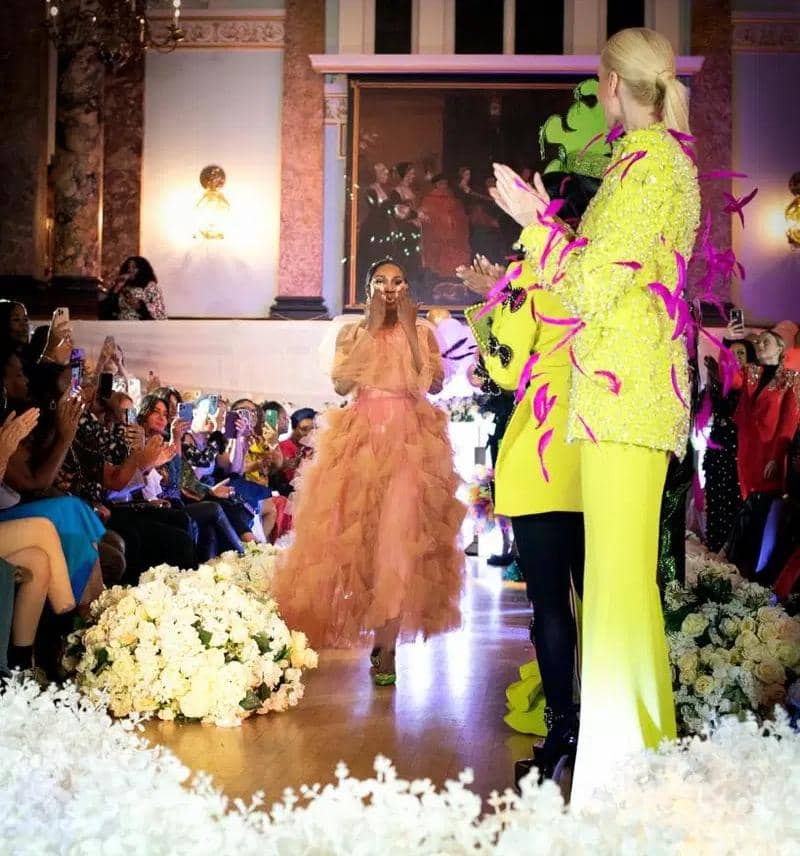Leading voices in Nigeria’s fashion industry came together in an insightful and thought-provoking discussion on the future of fashion, highlighting the importance of intellectual property, inclusion and influencer marketing as major key drivers.
The conversation hosted by G. Elias, a leading Nigerian business law firm, explored the evolving legal framework in the nation’s fashion industry.
Themed “The Future of Fashion: Emerging Trends, New Challenges, and the Evolving Legal Landscape,” the webinar featured a distinguished panel of experts who discussed the implications of design copying, the evolving legal framework, and strategies for designers and brands to protect their intellectual property.
Attendees gained valuable insights into safeguarding creative work and understanding the future of fashion.
Speaking on the future of the fashion industry, Managing Partner at G. Elias, Fidelis Adewole, said: “The fashion industry is a rapidly evolving sector where creativity and innovation are constantly tested. It is imperative that designers and brands understand the importance of protecting their intellectual property as this remains the bedrock of their creative endeavours. At G. Elias, we are committed to supporting our clients in navigating the complex legal landscape and ensuring their innovations are adequately protected.”
Yvonne Ntiamoah, Former Head of the Fashion & Design Department at Radford University College, Ghana, remarked, “The conversation around diversity and inclusion in the fashion industry has gained momentum, particularly during the COVID-19 pandemic and in the wake of the Black Lives Matter movement. While larger brands have the capacity to implement inclusive practices, it’s encouraging to see smaller brands also taking steps, such as fair-trade initiatives and engaging local communities. However, the challenge remains in bridging the gap between the global, westernized perspective of fashion and the local African context. Are we truly being inclusive and supportive of all individuals in the creative industries? The critical first step is having these discussions, but the real test lies in meaningful implementation.”
Feeding off Yvonne’s point, Fashion Consultant and Founder, Lhaude Africa, Rhoda Aguonigho, added, “COVID-19 significantly reshaped the creative industry in amplifying the role of influencer marketing. While this strategy existed before, its importance surged as brands realized the value of engaging with influencers who have strong, dedicated communities. However, it’s vital for brands to ensure that the influencers they partner with align with their values and messaging. Authenticity is key—an influencer who genuinely resonates with their audience can drive high engagement and even convert that into sales. Ultimately, the success of influencer marketing hinges on aligning your brand with influencers who not only share your values but also connect meaningfully with your target audience.”
Other speakers such as Co-founder, Nextberries, Oluchi Nwachukwu; Head of Intellectual Property, G. Elias, Similoluwa Oyelude, and Senior Associate, G. Elias, Ebimobowei Jikenghan, also gave insights on the recent legal framework in fashion and other valuable trends in the fashion industry.
Discussions underscored the pressing need for a stronger legal framework to protect creators’ rights and highlighted the crucial role of intellectual property protection in preserving original designs. Participants gained essential insights into the evolving trends and challenges within the fashion industry, along with practical strategies for designers and brands to safeguard their intellectual property.




